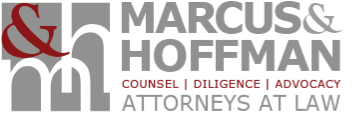Associations will often focus on the event of transition - that being the election at which time control of the association is turned over from a Declarant run Board of Directors to a Board where the majority of the Members are elected by the unit owners other than the Declarant. While this event is an important step in transition, it is only the beginning of the process of transition.
Following this key election, Board Members typically find themselves with a host of responsibilities from governing the association, focusing on budgetary and contractual matters, working with the management company and reviewing and understanding the governing documents. It is imperative that Boards be educated from the beginning regarding the transition process, including, but certainly not limited to:
1. Hiring key professionals:
- Accountant to work with the Association and the Declarant in completing a transition audit;
- Engineer to create a property transition report and reserve study;
- Insurance agent to ensure proper coverage as required under the governing documents; and
- Legal counsel to help understand the responsibilities of the Declarant under the governing documents and approved plans, an explanation of certain statutory warranties provided under state law; and to insure that the Declarant's responsibilities are fully met within the required timeframe.
2. Understanding the role of the local municipal government in approving the development and their continuing role with escrow accounts, punch lists, and ensuring completion of certain public improvements.
3. Understanding the importance of the association's governing documents and either following the documents as drafted or beginning the process of reviewing provisions which should be added, deleted or modified.
Educating new Board Members right from the beginning on the transition process will help ensure that communities start off on the right foot and avoid having to play catch up. If you are working with a newly elected unit owner controlled Board and would like to schedule a transition meeting with legal counsel, please call Adam Marcus at 610-565-4660.
Following this key election, Board Members typically find themselves with a host of responsibilities from governing the association, focusing on budgetary and contractual matters, working with the management company and reviewing and understanding the governing documents. It is imperative that Boards be educated from the beginning regarding the transition process, including, but certainly not limited to:
1. Hiring key professionals:
- Accountant to work with the Association and the Declarant in completing a transition audit;
- Engineer to create a property transition report and reserve study;
- Insurance agent to ensure proper coverage as required under the governing documents; and
- Legal counsel to help understand the responsibilities of the Declarant under the governing documents and approved plans, an explanation of certain statutory warranties provided under state law; and to insure that the Declarant's responsibilities are fully met within the required timeframe.
2. Understanding the role of the local municipal government in approving the development and their continuing role with escrow accounts, punch lists, and ensuring completion of certain public improvements.
3. Understanding the importance of the association's governing documents and either following the documents as drafted or beginning the process of reviewing provisions which should be added, deleted or modified.
Educating new Board Members right from the beginning on the transition process will help ensure that communities start off on the right foot and avoid having to play catch up. If you are working with a newly elected unit owner controlled Board and would like to schedule a transition meeting with legal counsel, please call Adam Marcus at 610-565-4660.

